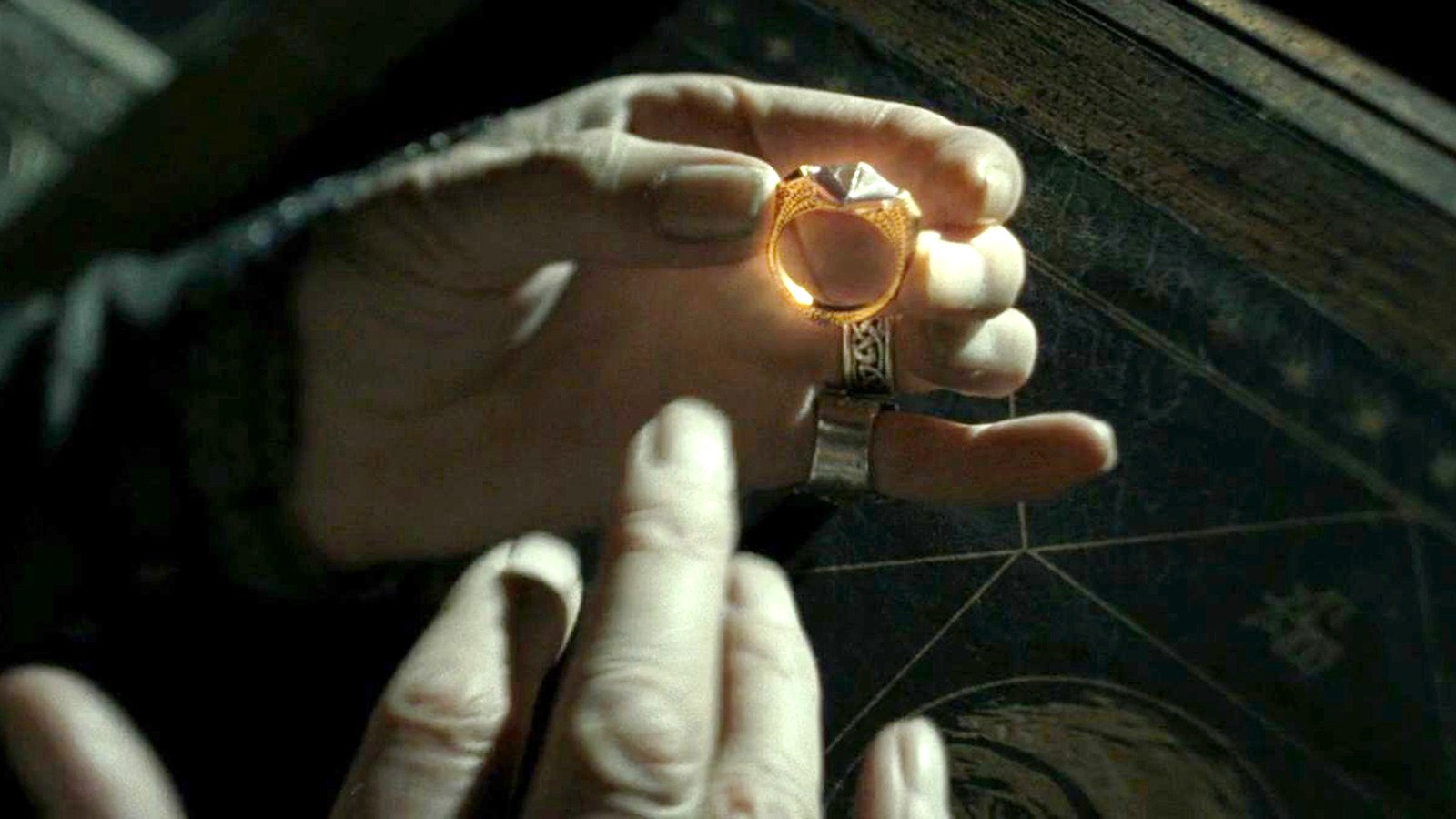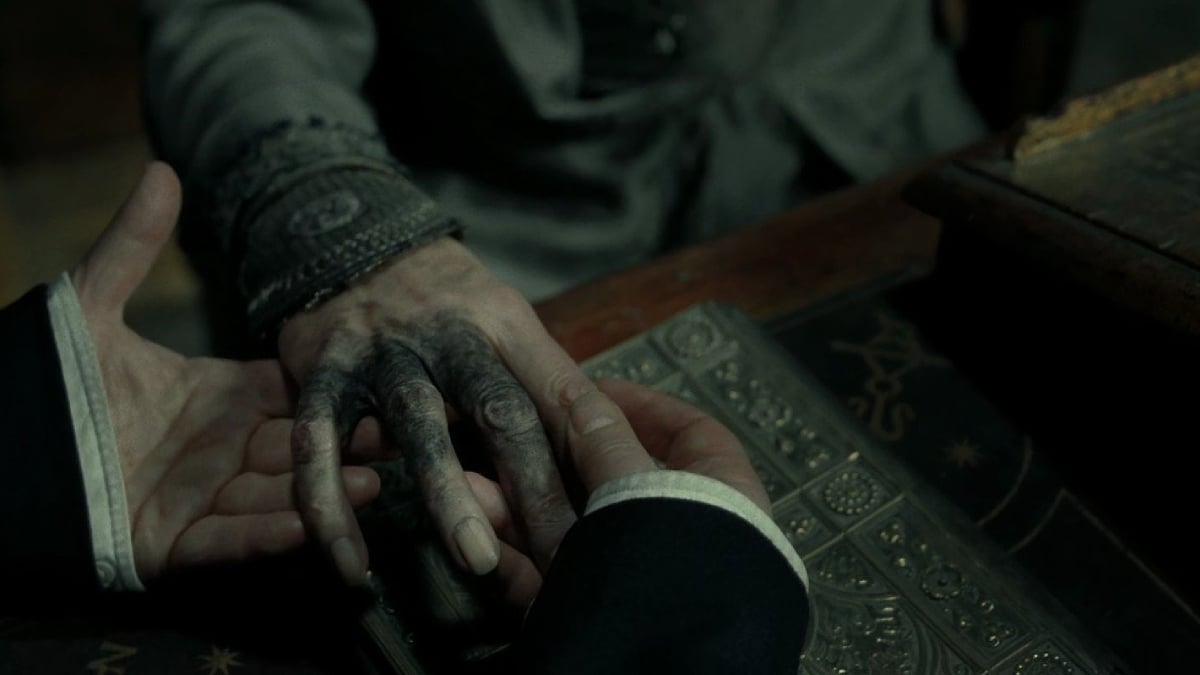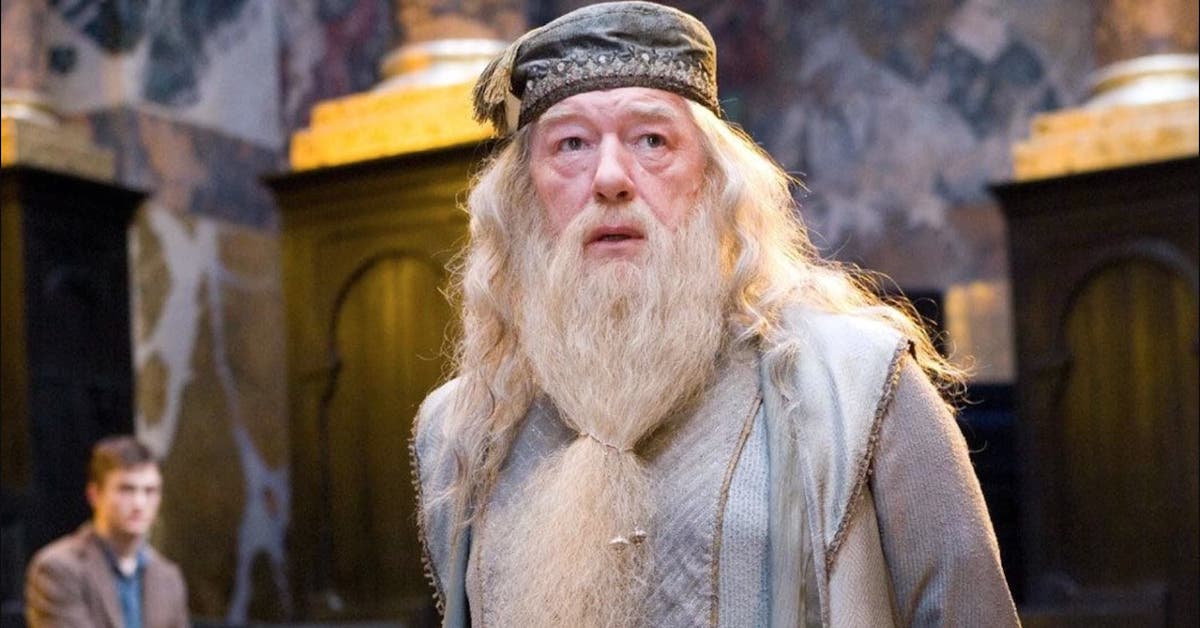Every great hero, even the greatest wizard of all time, has a weakness. For Albus Dumbledore, that weakness was also his greatest strength. His capacity for love and boundless compassion for others were two traits that simply couldn’t live while the other survived, as was the case for Harry Potter and Lord Voldemort.
The Headmaster of Hogwarts bumped against this dilemma at the end of Order of the Phoenix while searching for Voldemort’s Horcruxes. Aware of Voldemort’s attraction to powerful people and objects, Dumbledore suspected that the Dark Lord might have turned his famous family heirloom ⏤ the ring of Salazar Slytherin ⏤ into a Horcrux. His suspicion was correct, but to his surprise, upon visiting Voldemort’s mother’s house, he discovered that the ring of Salazar Slytherin, which had been passed down from generation to generation, was also one of the Deathly Hallows and that Voldemort, in his haste for immortality, had violated it with dark magic.
Which is it? A Resurrection Stone or a Horcrux?
The answer is both. The Resurrection Stone referenced in the famous children’s fairy tale “The Tale of Three Brothers” was created by Death itself and passed down through the Peverell family all the way to Salazar Slytherin. At that point, the ring ceased to be known for what it was and became known simply as Salazar Slytherin’s famous heirloom.
Having grown up with Muggles, Voldemort was not privy to wizard children’s stories and likely never heard of “The Tale of Three Brothers” or the Deathly Hallows. In his haste for immortality, he ended up making a Hallow a Horcrux.
Why did Dumbledore put the ring on?

Dumbledore was a secretive man. He kept his cards close to his chest. Perhaps his biggest secret of all was the one he kept hidden in plain sight. Unbeknownst to Voldemort or any other members of the magical community, the Headmaster’s wand was actually the Elder Wand, the most powerful wand in history and one of the Deathly Hallows, which meant that Dumbledore surely recognized the Deathly Hallows symbol on Salazar Slytherin’s ring when he saw it.
No doubt the symbol brought back memories of his youth, specifically his friendship with Gellert Grindelwald and their mischievous quest to acquire the Deathly Hallows and overpower the Muggle race. No doubt, a flush of power came over him at that moment, blinding his better judgment and tempting him with the possibility of reuniting the Deathly Hallows once and for all. After all the years of taming his lust for power, here was an opportunity to lean into the urge. That being said, it was neither his lust for power nor his nostalgia for the days of his youth that made him put the ring on.
No, the Headmaster was a wise man with a vat of incomparable knowledge, so he surely had an idea of what would happen if he slid the ring onto his finger. Here was a Horcrux violated by dark magic, passed down through generations of dark wizards, but at that moment, all Dumbledore saw was an opportunity to be reunited with his mother and sister.
What caused his hand to turn black and decay?

Like all the other Horcruxes Voldemort created, a protective curse was placed over the Ressurection-Stone-turned-Horcrux. Anyone who tried to take the ring would be cursed the moment it touched their finger, which is exactly what happened to Dumbledore.
Given that Harry used the Ressurection Stone at the end of Deathly Hallows to speak with his mom, dad, Lupin, and Sirius, the magical properties in the stone obviously still worked even after being turned into a Horcrux. It makes you wonder whether or not Dumbledore got to speak with his sister and mother. What we do know is that he used the sword of Gryffindor to destroy the Horcrux and then sought Professor Snape’s help to temporarily contain the curse from spreading beyond his hand. He removed the Ressurection Stone from the inlet of the ring, placed it inside the first Golden Snitch Harry ever won in Quidditch, and passed it down to Harry, who, he believed, was the most selfless person he’d ever known and would protect the ring from getting into the wrong hands.
In the end, we learned that Dumbledore was more than just the most powerful wizard of all time. He wasn’t just wise, intelligent, and compassionate ⏤ he was also remorseful, self-conscious, and deeply flawed. In other words, Albus Dumbledore was just like everyone else.

